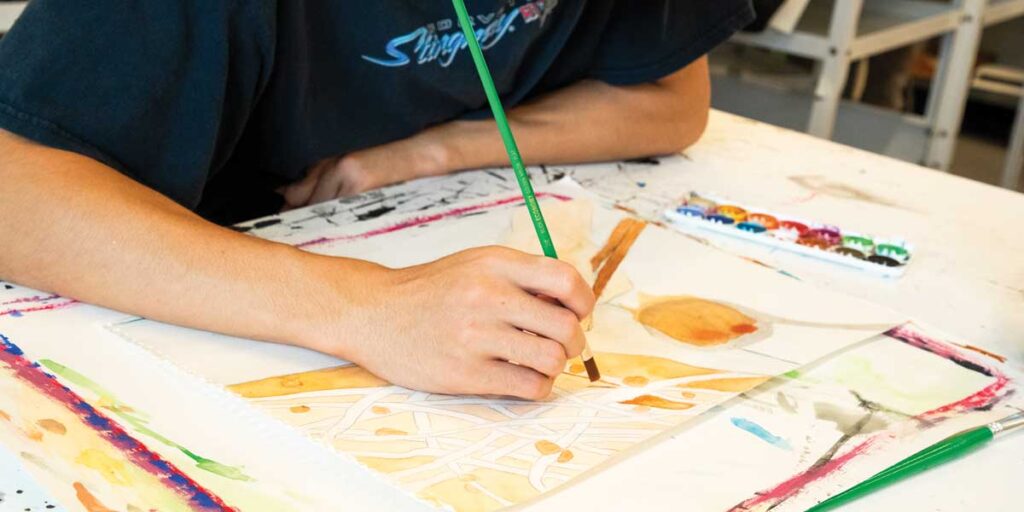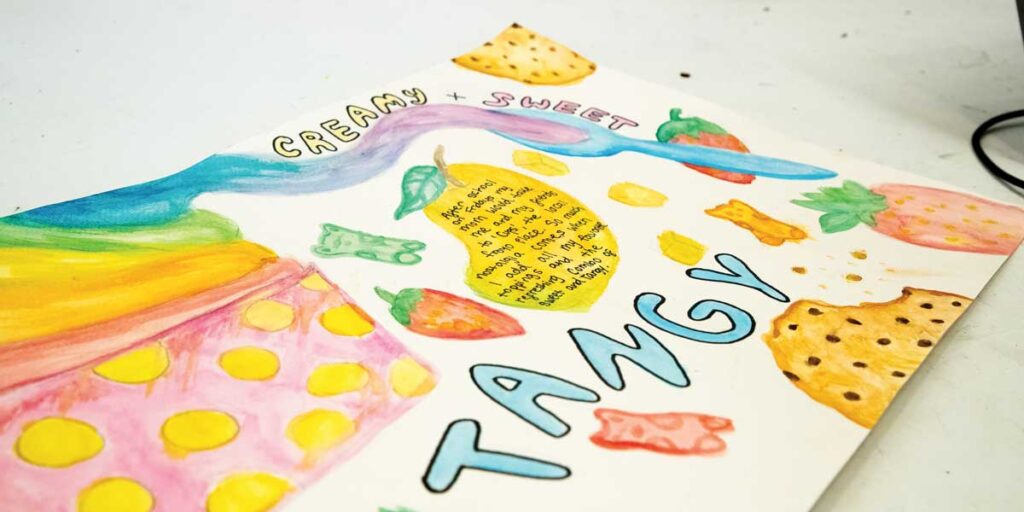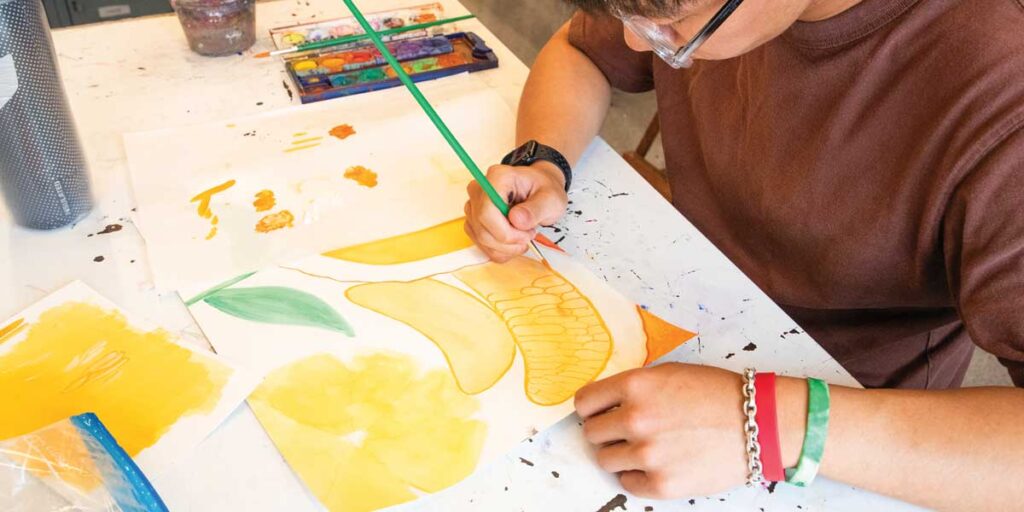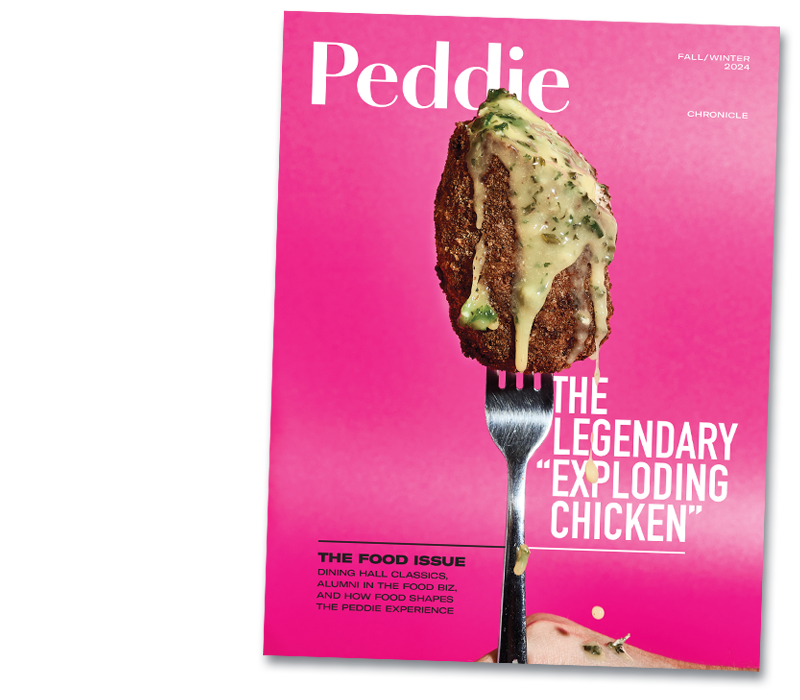Feature
Feeding Minds
Peddie’s food-focused lessons equip students to tackle global challenges.
At Peddie, food is more than just a subject of study – it’s a gateway to understanding complex social, environmental and cultural issues. Students learn to navigate the connections between what’s on their plates and the world around them, preparing them to tackle some of the most critical global challenges.
SCIENCE MEETS SUSTAINABILITY
In AP Environmental Science, Nika Blank ’16 leads her students through the tactile process of growing microgreens, a hands-on project designed to teach them the intricacies — and fragility — of food production. The challenge isn’t just cultivating the greens but realizing how a minor oversight, like missing a watering session, can devastate a crop.
But the most striking revelation comes when students realize their disconnect from the very food they’ve grown. “Some ask, ‘Wait, we can eat these? Is it safe?’” Blank recalled, highlighting how distant many students are from their food sources. It’s a revelation that carries weight, especially as Blank pushes her students to think critically about sustainability and the scale required to feed a growing population.
Blank recalled an eye-opening moment when Peddie Food Service Executive Chef Jeremy Stahl and Catering Manager Pamela Houskeeper visited her class to discuss the logistics of feeding the school. “The students were surprised at the cost variation, and how produce can sometimes be the most expensive item on Chef Jeremy’s shopping list,” Blank said. It was a stark reminder that feeding a school mirrors the global struggles in producing affordable, sustainable food.
A TASTE OF CULTURE
In Peddie’s French classes, food is essential to learning about culture. French Teacher Nathalie Letourneau moves beyond traditional language instruction to explore the significance of meals in society. “It’s really about how much cultural knowledge and competency we can develop in students,” she said. “And food is such a great gateway for that.”
In French III, students explore the traditions surrounding mealtimes, while those in French IV dig into the history of the Michelin Guide and its influence on global culinary prestige. By AP French, students are exploring critical global topics like food insecurity and the debate over genetically modified organisms. Along the way, they make crêpes in the dining hall and brew traditional Moroccan mint tea, finding that language, like food, is best digested with experience and reflection.
FOOD AS A PERSONAL NARRATIVE
While science teaches the mechanics of food production, art delves into its emotional resonance. Joyce Chen, who teaches Drawing and Painting, asks students to illustrate or paint dishes that hold deep personal significance in her food autobiography project. Whether it’s a beloved childhood snack or a traditional family meal, the students’ art reveals how food is tied to memory, culture and identity.
“The goal,” Chen said, “is for students to reflect critically on how food is shaped by their lives and communities. I want them to think about the systems, values and traditions that shape their food choices and, ultimately, who they are.”
What begins as an intimate exercise in nostalgia quickly becomes a broader examination of how personal identity and cultural history are entangled in what we eat. From family traditions to the impact of globalization on local cuisines, Chen’s students gain a layered understanding of the role food plays in their lives.



THE SCIENCE OF EATING
In Madeline Cozine’s Food Science course, students are invited to step into the kitchen as both scientists and chefs. Here, they experiment with cooking techniques while engaging in broader discussions about food production’s ethical, social and environmental implications. Beyond the classroom, students venture into community-based projects, growing vegetables alongside Peddie’s environmental club members to donate to local food pantries, emphasizing the connection between scientific knowledge and social responsibility.
PERFORMANCE ON A PLATE
Jordi Serrato’s Sports Science class tackles nutrition from an entirely different angle, teaching students how to fuel their bodies for optimal athletic performance. “I want to teach them the basics — like nutrition requirements and reading a food label — and build it from there,” Serrato said. From understanding macronutrients and hydration to meal prepping for specific athletic goals, students learn how food choices can enhance their physical and mental capabilities.
Serrato takes it further by encouraging his students to engage with the ethical dilemmas of sports nutrition, including debates on performance-enhancing drugs and supplements. This focus on sports nutrition reflects a holistic understanding that food not only fuels the body but also shapes athletic integrity and ethical decision-making.
